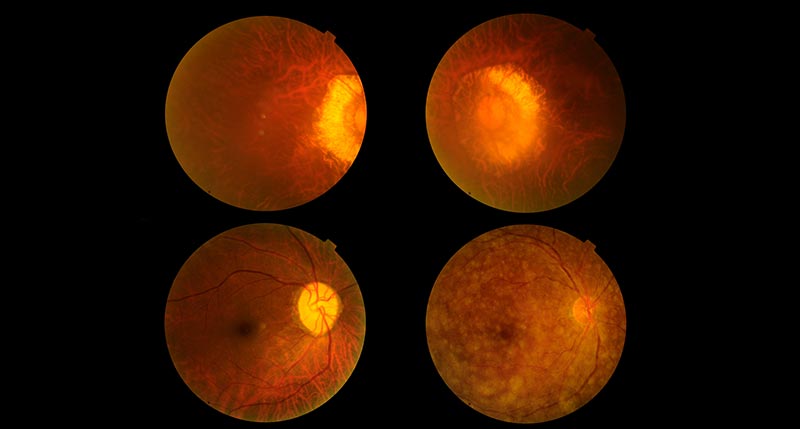In March, we celebrate Women’s History Month. And we’re proud to say that optometry is one place women are making history. Did you know that optometry began as a predominantly male profession in the late 1800s, but today, women make up nearly half of all practicing optometrists in the United States? What a fascinating journey!
First, some background basics. Optometry is the science of examining and caring for eye health, diagnosing and treating vision problems, and prescribing vision-correcting glasses and contact lenses. Though the first pair of “prescription” glasses were created in Italy in 1286, the word optometry didn’t appear until 1759 in a book called A Treatise of the Eye by a Scottish doctor, William Porterfield.
Modern optometry began to emerge in the late 1800s and early 1900s. Around that same time, women were starting to gain more access to higher education and professional careers. One of the early pioneers of optometry was Dr. Gertrude Stanton, the first woman in the U.S. licensed to practice optometry. Although she received her license “by exemption” in 1901 when Minnesota passed the country’s first licensure law, Dr. Stanton went on to run a successful all-female optical business. Dr. Stanton participated in professional associations, public service projects, and gave back to her community. While that seems natural for women in 2023, it was quite groundbreaking 100 years ago. Dr. Stanton provided an inspiring start for women in optometry!
To give you an idea of how the role of women in optometry has grown, let’s look at some statistics. In 1912, there were about 500 women optometrists in the U.S. out of 17,000 total. That means 3% of optometrists were women 100 years ago. Happily, that number has now increased significantly. In 2021, according to the U.S. Bureau of Labor Statistics, there were nearly 39,000 total optometrists in the U.S., and about 47% of practicing optometrists are women.
But wait — there’s more: Women are now attending U.S. optometry schools in record numbers. In the Fall of 2021, enrollment for the class of 2025 was 71% female, a 2 percent increase compared with enrollment in 2020. In short: Women are on the rise in the field of optometry.
“When I first started going to meetings representing the profession, there were very few female doctors in the room. I remember counting on one hand the number of women in a room of a few hundred. That just isn’t the case today,” said Dr. Dori M. Carlson, O.D., the first female president of the American Optometric Association.
One factor that has undoubtedly contributed to the rise of women in optometry is the increasing number of women entering healthcare professions in general. According to the U.S. Bureau of Labor Statistics, women now make up the majority of healthcare workers in the U.S., and this trend shows no signs of slowing down. As more women pursue careers in healthcare, it makes sense that more would also choose optometry as a specialty.
Another factor in the rise of women in optometry is the growing recognition of the importance of diversity and representation in healthcare. Many healthcare organizations and institutions have made a concerted effort to increase diversity, both to better reflect the communities they serve and to bring a broader range of perspectives and experiences to the table. This has created more opportunities for women and other underrepresented groups to enter and succeed in optometry.
Diversity in optometric care means better care overall. Diversity in any (and every!) profession is important because it allows for a wider range of perspectives and experiences to be represented. As women bring their unique insights and expertise to the field of optometry, it can help improve patient care and outcomes.
In addition, having more women in optometry will inspire and motivate future generations of female optometrists. You’ve likely heard of STEM – referring to Science, Technology, Engineering, and Mathematics. There is a gender gap in STEM jobs. To close that gap, many organizations encourage young women and girls to explore STEM careers. Optometry is a huge STEM career success story! When young women see successful female optometrists in positions of leadership and influence, it can help them envision themselves in those roles and inspire them to pursue careers in optometry or other healthcare fields.
“To be a woman in optometry today is to learn from the women who have paved the way, as well as paving the way for future optometrists,” said Dr. Suzanne Johannes, a 2019 graduate of Southern College of Optometry featured in the American Optometric Association’s article, The Future is Female.
We celebrate the fact that women in optometry are a rising force for good in our profession!





